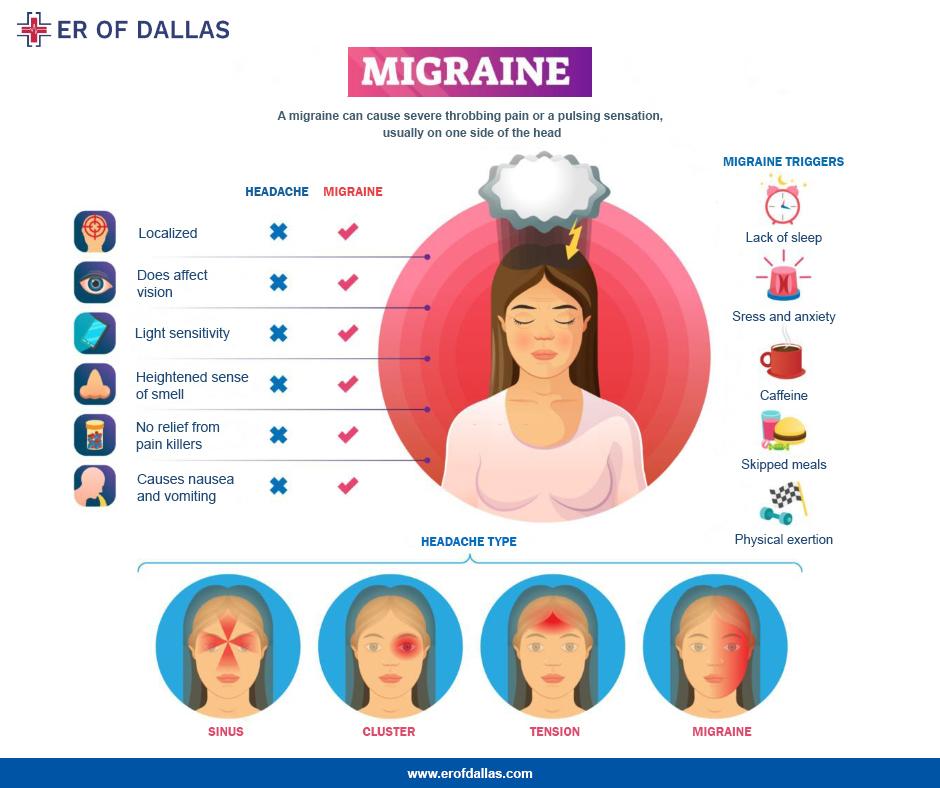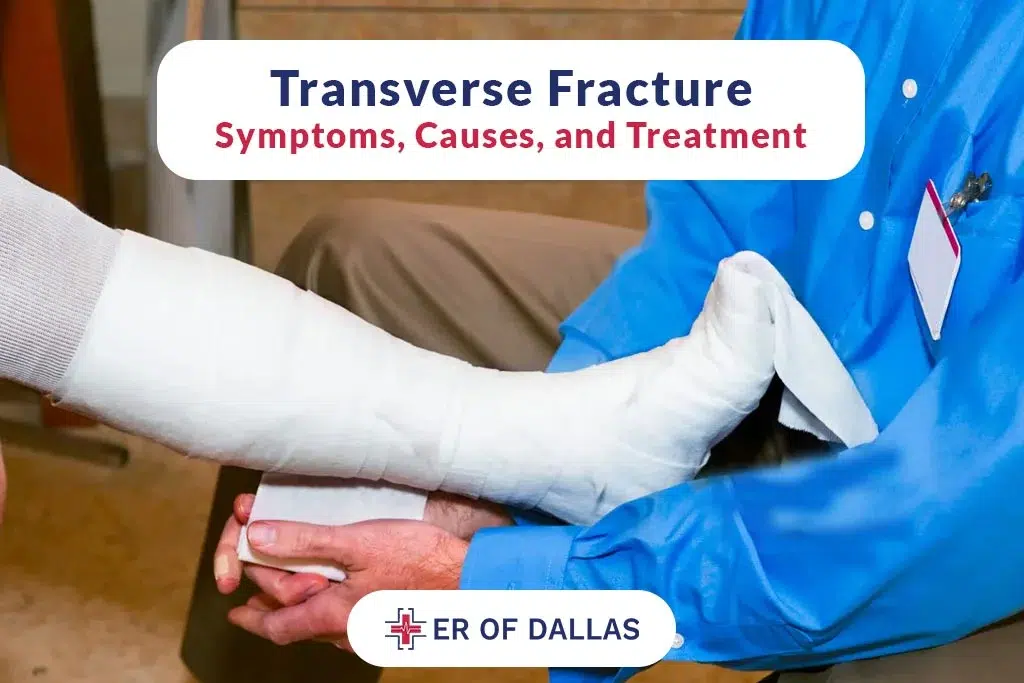What is Migraine?
A migraine is a headache that is attributed to intense, throbbing pain, often on one side of the head. The pain often comes with other symptoms such as sensitivity to light, noise, or smells; nausea; and vomiting. Moreover, they often appear in episodes and sometimes last for more than two days. While in some cases, this headache remains only for a few hours, and after taking medicine, it goes away.
Causes of Migraine
Migraines are believed to be caused by a combination of genetic and environmental factors and can be triggered by stress, lack of sleep, certain foods, and changes in hormones, among other things. Treatment for migraines typically involves medications to relieve the headache pain and to prevent future migraines, as well as lifestyle changes from reducing triggers. The exact cause of migraines is still unknown, but it is thought to be linked to changes in the brain and the surrounding blood vessels.
Symptoms of Migraine
 The symptoms of a migraine can vary from person to person but typically include the following:
The symptoms of a migraine can vary from person to person but typically include the following:
- A pulsing or throbbing headache pain, typically on one side of the head but occasionally on both, is a common symptom of migraines.
- Many migraine sufferers are sensitive to light, commotion, and intense odors during an attack.
- Some individuals with migraines experience visual disturbances, known as aura before the headache starts. Flashing lights, zigzag lines, or momentary visual loss are examples of aura symptoms.
- Some people with migraines experience nausea and vomiting during a migraine attack.
- Before, during, or after a headache, many migraine sufferers report feeling exhausted and fatigued.
- Additionally, some migraine sufferers report neck pain or stiffness.
Types of Migraine
There are several different types of migraines, including:
Persistent migraine
This form of migraine is identified when a person experiences headaches at least 15 days per month for more than three months, and at least eight are migraines.
Vestibular migraine
This type of migraine is characterized by dizziness, vertigo, unsteadiness, and headache pain.
Menstrual Migraine
This type of migraine is connected to a woman’s menstrual cycle and is believed to be brought on by hormonal changes.
Hemiplegic migraine
This is a rare variety of migraine that includes headache pain, other symptoms, and temporary paralysis on one side of the body.
Vestibular Migraine
In addition to headache discomfort, this type of migraine is marked by dizziness, vertigo, and unsteadiness.
Headaches without an aura
This form of migraine, which is the most typical, is marked by headache pain as well as other signs, including nausea and sensitivity to light and noise.
Headache with an aura
Before the headache starts, this type of migraine is marked by transient visual, sensory, or motor symptoms. These signs are referred to as an aura.
Treatment Options for Migraine
The treatment of migraines can involve acute and preventive measures, depending on the frequency and severity of the headaches. Some of the most common treatment options for migraines include:
Medicines that reduce pain
Aspirin, ibuprofen, and acetaminophen are examples of over-the-counter medications that can aid with headache discomfort from migraines. Stronger drugs, such as triptans or opioids, may be prescribed by a doctor for more severe migraines.
Preventative Drugs
A doctor may regularly provide preventive drugs to a patient who suffers from migraines to lessen the frequency and intensity of the headaches. Beta-blockers, calcium channel blockers, anticonvulsants, and antidepressants are some of the most often prescribed migraine prevention drugs.
Lifestyle Changes
The frequency and intensity of migraines can be decreased by making lifestyle adjustments such as regular exercise, stress reduction strategies, and avoiding trigger foods.
Alternative treatments
Acupuncture, chiropractic adjustments, and massage therapy are examples of alternative treatments that some migraine sufferers find helpful.
Risk Factors for Migraine
Multiple factors can increase the risk of developing migraines, including:
- A person’s chance of migraines can rise if there is a family history of the condition.
- Migraines can affect anyone at any age, but they are most prevalent in adults between the ages of 25 and 55.
- Women are more prone than males to get migraines, mainly while they are in their reproductive years.
- For certain people, acute or ongoing stress can cause migraines.
- In women, fluctuations in estrogen levels, such as those that happen during menstruation or menopause, can cause migraines.
- For some people, migraines can be brought on by inadequate sleep or disturbed sleep habits.
- Some people may experience migraines due to consuming certain foods and beverages, including red wine, aged cheeses, chocolate, and processed meals.
FAQs
-
Are migraines curable?
There is no cure for migraines, but treatments available can help manage the symptoms and reduce the frequency of migraines. These treatments include medication, lifestyle changes, and alternative therapies.
- Are migraines fatal?
Migraines themselves are not typically fatal, but in rare cases, they can be associated with serious complications that can be life-threatening. For example, in some people with migraines, the condition can increase the risk of stroke, particularly if the migraines are accompanied by other risk factors such as high blood pressure, smoking, and a family history of stroke. Additionally, certain types of migraines, such as those with aura, have been linked to a higher risk of developing certain neurological conditions, such as dementia and Parkinson’s disease.
-
When to call your doctor for a migraine?
You should call your doctor if you experience any of the following symptoms during a migraine:
- Severe headaches
- Vision problems
- Speech problems
- Weakness and numbness
- Prolonged headaches
- Change in headache pattern
-
How to prevent migraine?
Here are some tips to help prevent migraines:
- Maintain a regular sleep schedule
- Exercise regularly
- Eat a healthy diet that is high in fruits, vegetables, and whole grains
- Reduce stress
- Limit caffeine and alcohol
- Avoid triggers such as certain foods, stress, or changes in sleep patterns, and try to avoid them.
- Take prescribed medicines











